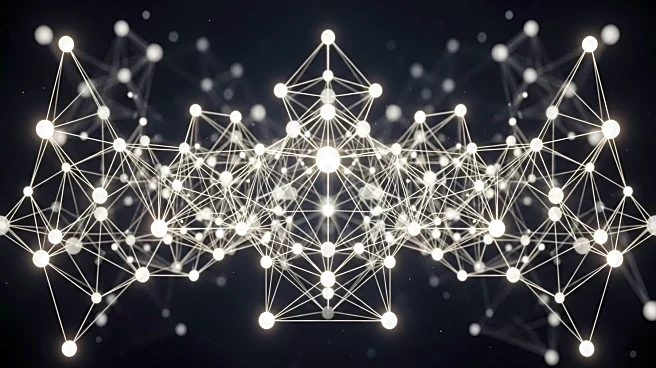What is the story about?
What's Happening?
A study published in Nature explores the use of quantum-inspired modeling to understand social impact within complex networks using artificial intelligent agents. The research introduces a quantum-like model of emotional states, utilizing a two-level system to describe opposing feelings such as joy and sadness. The model employs quantum probability theory to specify emotional states, offering a novel approach to analyzing social dynamics. By applying quantum tomography, the study aims to measure emotional states and social polarization within network communities, providing insights into how social interactions influence individual emotions.
Why It's Important?
This research represents a significant advancement in modeling social dynamics, offering a new perspective on how emotions and social interactions can be quantified using quantum-inspired methods. The ability to measure emotional states and social polarization has implications for understanding group behavior, decision-making processes, and the impact of social networks on individual well-being. By bridging quantum physics and social science, the study opens new avenues for interdisciplinary research, potentially influencing fields such as psychology, sociology, and cognitive science.
What's Next?
The study suggests further exploration of quantum-inspired models to analyze social systems, with potential applications in understanding collective behavior and social cohesion. Researchers may investigate how these models can be applied to real-world social networks, examining the influence of network structures on emotional states and decision-making. The integration of quantum-inspired methods into social science research could lead to new tools for analyzing complex social phenomena, offering insights into the dynamics of social influence and group polarization.
Beyond the Headlines
The use of quantum-inspired modeling in social science raises ethical and philosophical questions about the nature of emotions and consciousness. By treating emotions as quantifiable states, the research challenges traditional views on human experience and opens discussions on the implications of reducing complex emotional processes to mathematical models. The study also highlights the potential for AI to influence social dynamics, prompting considerations about the role of technology in shaping human interactions and the ethical boundaries of AI-driven research.















